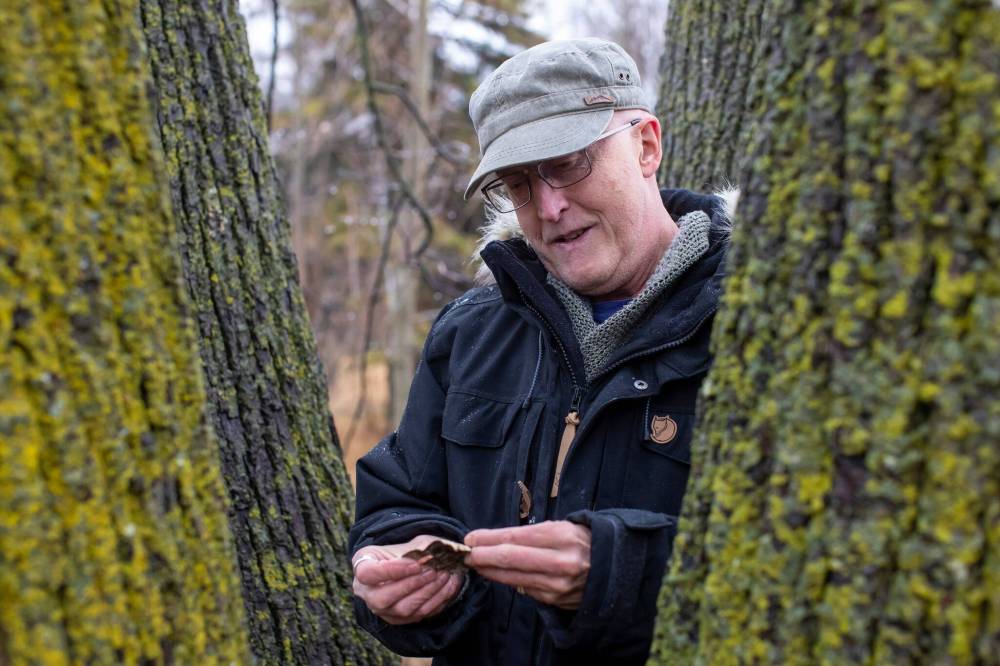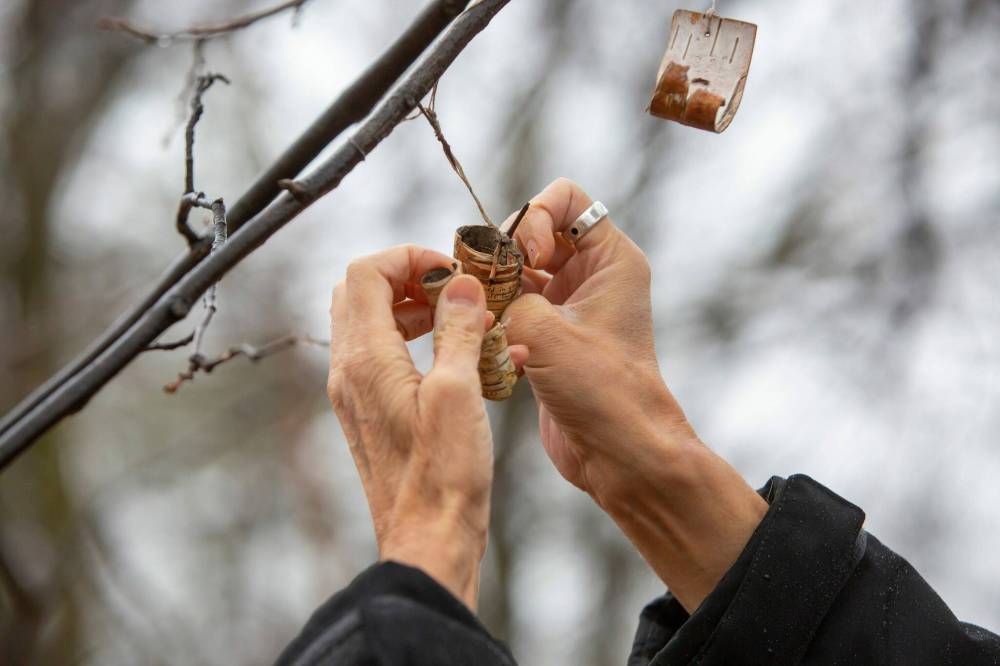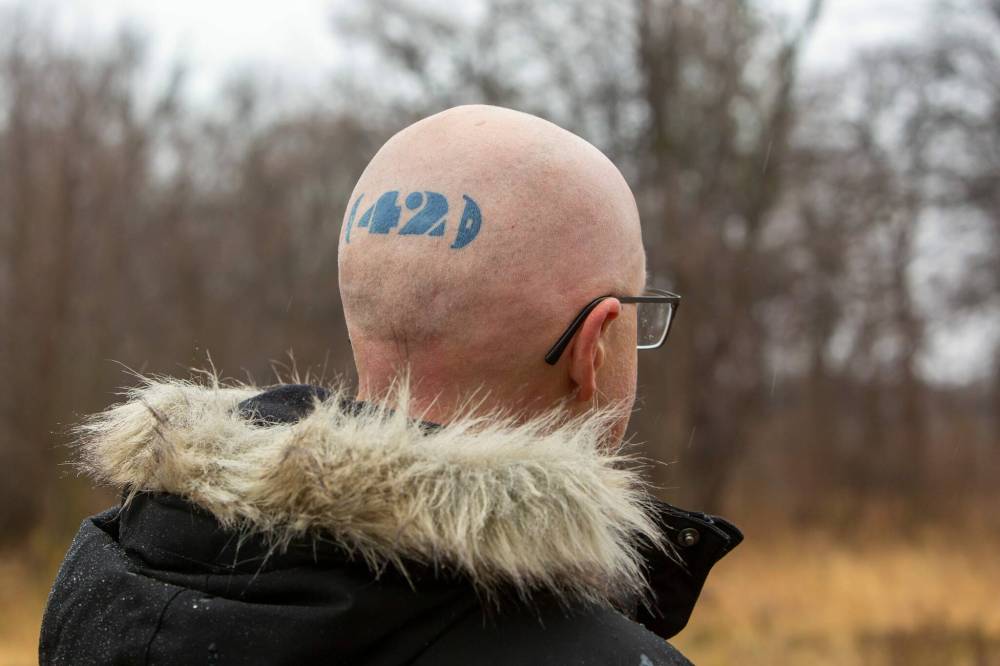Branching out
Francophone poet brings own script to life from director’s chair
Advertisement
Read this article for free:
or
Already have an account? Log in here »
To continue reading, please subscribe:
Monthly Digital Subscription
$0 for the first 4 weeks*
- Enjoy unlimited reading on winnipegfreepress.com
- Read the E-Edition, our digital replica newspaper
- Access News Break, our award-winning app
- Play interactive puzzles
*No charge for 4 weeks then price increases to the regular rate of $19.00 plus GST every four weeks. Offer available to new and qualified returning subscribers only. Cancel any time.
Monthly Digital Subscription
$4.75/week*
- Enjoy unlimited reading on winnipegfreepress.com
- Read the E-Edition, our digital replica newspaper
- Access News Break, our award-winning app
- Play interactive puzzles
*Billed as $19 plus GST every four weeks. Cancel any time.
To continue reading, please subscribe:
Add Free Press access to your Brandon Sun subscription for only an additional
$1 for the first 4 weeks*
*Your next subscription payment will increase by $1.00 and you will be charged $16.99 plus GST for four weeks. After four weeks, your payment will increase to $23.99 plus GST every four weeks.
Read unlimited articles for free today:
or
Already have an account? Log in here »
Hey there, time traveller!
This article was published 20/11/2024 (364 days ago), so information in it may no longer be current.
Bertrand Nayet doesn’t need paper to write a story down.
When the 62-year-old francophone poet was a teenager, he was roving about in St-Pierre-Jolys when he was struck by an idea — whether it was a lyric, a lasting image, an optimistic starting point or the kernel of a devastating ending, he can’t recall. What Nayet remembers is that in his pocket he had a pen, but he didn’t have a notepad.
So, from the ground beneath a Prairie oak, he picked up a fallen leaf. If Nora Ephron believed that everything was copy, Bertrand Nayet might contend that every surface is a waiting page.

BROOK JONES / FREE PRESS
Poet Bertrand Nayet will write on anything, including birch bark.
“I wrote on cattails, leaves, birch bark and sometimes just grass — the wide, broad blades. Stretch it on my knees and write on that,” says Nayet, a resident of St. Norbert whose family moved in the mid-1970s from a sheep farm in a village in the south of France to run a hog farm in a village in the south of Manitoba.
It’s not that Nayet didn’t have access to paper, but he was beginning to understand that his future wouldn’t be measured in acreage. The author and director of Sous les tilleuls (Under the Linden Trees), opening tonight at Cercle Théâtre Molière, knew his destiny lay in words.
“Now, I have this with me all the time, or most of the time,” he says, producing a palm-sized notebook from inside his well-worn leather jacket. “But back then, I didn’t have a notebook. I used, you know, old receipts. I was writing on whatever I found.”
A teacher who retired from Collège Louis Riel in 2018, Nayet, though relatively unheralded in the anglophone literary world, is a prolific producer in his native tongue, having published a dozen books and counting.
His latest work, Sous les tilleuls, came to fruition over a 29-day stretch house-sitting in Quebec’s Lower St. Lawrence region in 2019.
“A lot of the work was paring it down to the essentials, but the one thing that didn’t change was the synopsis, and that was the story of a young woman whose parents were the authors of a coup d’état,” he says.
Gina Lagarde (played by Katrine Deniset) is a reporter who’s been cast as the black sheep in a family teeming with rebellious spirits.
“She stands for truth, for a kind of reconciliation we could say, and from an early age, she showed an appetite for justice. That put her at odds with her parents,” says Nayet.
Gina regards her forebears as “theological fascists,” while they regard themselves as revolutionaries, even after their coup’s short-lived success.
But Gina wasn’t the only child caught up in her parents’ war. Her brother was an active participant, deemed a terrorist for his actions. After 15 years, she looks to recover his body and give it a proper burial.

BROOK JONES / FREE PRESS
Nayet ties birch bark poems to a linden tree at Île Pollock Park.
If that plot feels classic, it’s because Nayet recognized in Gina more than a trace of Antigone, the protagonist of Sophocles’ enduring mortality play who defies royal edict in pursuit of her brother Polynices’ peaceful rest.
Nayet saw connections between Antigone’s story, Gina’s struggle and the aftermath of the Boston Marathon bombing in 2013. After that attack’s perpetrator, Tamerlan Tsarnaev, was killed by police, no cemetery in the area would bury him.
In those three instances of purgatorial unrest, Nayet saw themes that could be understood by an ancient Greek as well as a modern Manitoban.
“I wanted to explore the idea that humanity doesn’t change,” he says, summarizing a universal outlook of stoicism, which Nayet considers daily as he hopes for the opposite.
“Most of what I write is about trying to get beyond our limitations, beyond what antagonizes people, and to talk about what really connects us as humans. I know it’s kind of a cliché, but it’s one we can’t do without.”
On the back of his shaved head, Nayet has a tattoo of the number 42, a nod to Douglas Adams’ The Hitchhiker’s Guide to the Galaxy.
“That’s the answer to life,” says Nayet, referring to the numerical response given by the novel’s supercomputer to the “Ultimate Question of Life, the Universe and Everything.”
“What connected me to that book is the absurdity of it all. The joke in the book is that they have the answer but they don’t have the question.”
Nayet has both.

BROOK JONES / FREE PRESS
Nayet’s No. 42 tattoo is an ode to The Hitchhiker’s Guide to the Galaxy.
“How do we get along? How do we get along with our enemies? How do we move forward knowing we have different ways of thinking, of seeing things, of doing things? Is there a way we can go past that difference, past the details of a society, past our belief systems? Because in the end, we all want the same things. We all want happiness. We all want our children to prosper. But we can’t do that that if we don’t listen to each other. We can’t do that if we don’t talk with each other, and if we don’t try to see life from the point of view of our enemies, or even the person in front of us,” he says.
“Our actions, our decisions, make a difference, even if the decision goes against our well-being. And that’s the definition of a hero — someone who acts despite the consequences in hopes that it will benefit others.”
Doesn’t that depend on who’s doing the defining?
“As I say in the play, it depends on how the story is written and who tells it,” he says.
Write that on a blade of grass and tie it around your finger.
ben.waldman@winnipegfreepress.com

Ben Waldman is a National Newspaper Award-nominated reporter on the Arts & Life desk at the Free Press. Born and raised in Winnipeg, Ben completed three internships with the Free Press while earning his degree at Ryerson University’s (now Toronto Metropolitan University’s) School of Journalism before joining the newsroom full-time in 2019. Read more about Ben.
Every piece of reporting Ben produces is reviewed by an editing team before it is posted online or published in print — part of the Free Press‘s tradition, since 1872, of producing reliable independent journalism. Read more about Free Press’s history and mandate, and learn how our newsroom operates.
Our newsroom depends on a growing audience of readers to power our journalism. If you are not a paid reader, please consider becoming a subscriber.
Our newsroom depends on its audience of readers to power our journalism. Thank you for your support.

